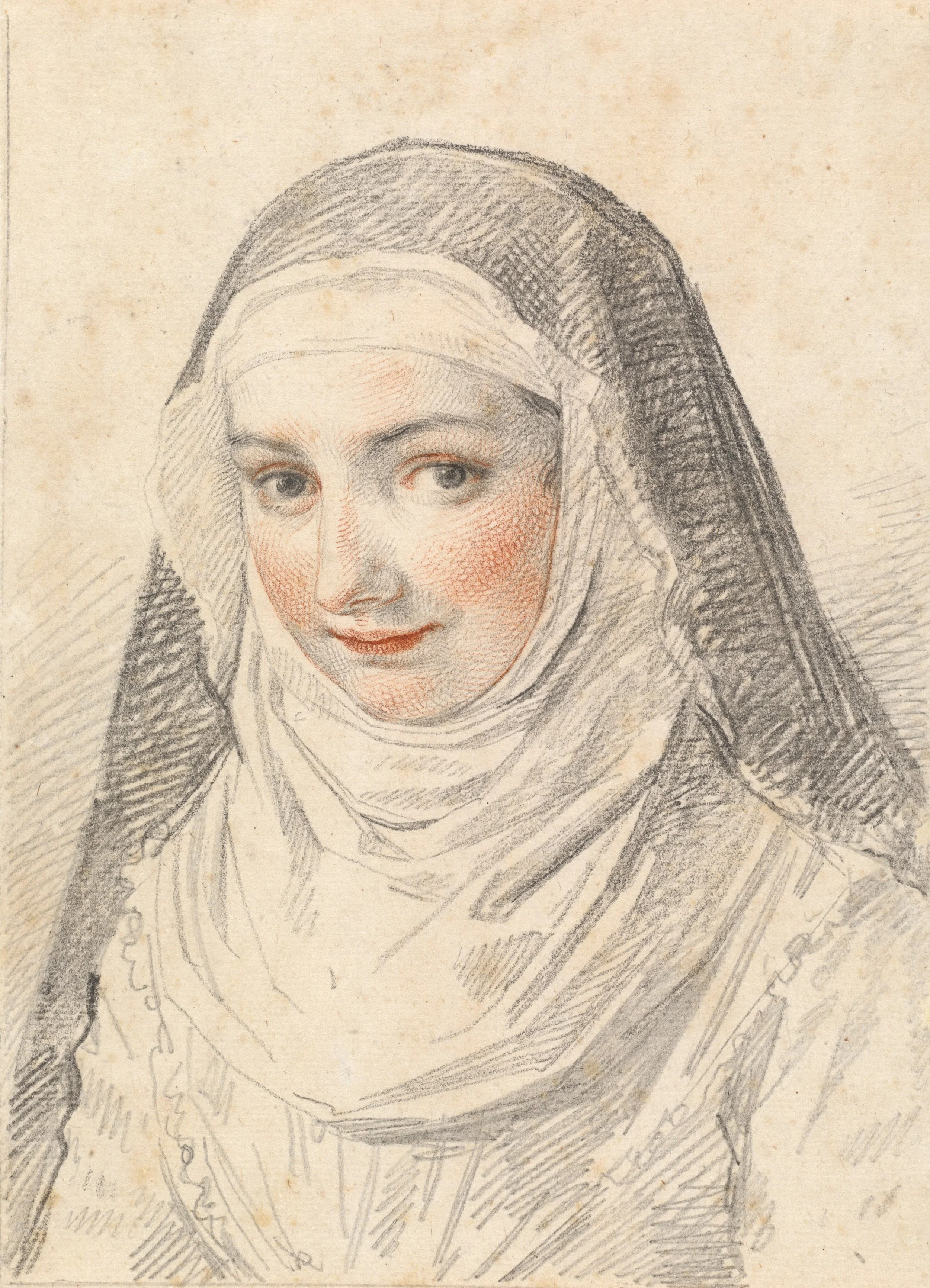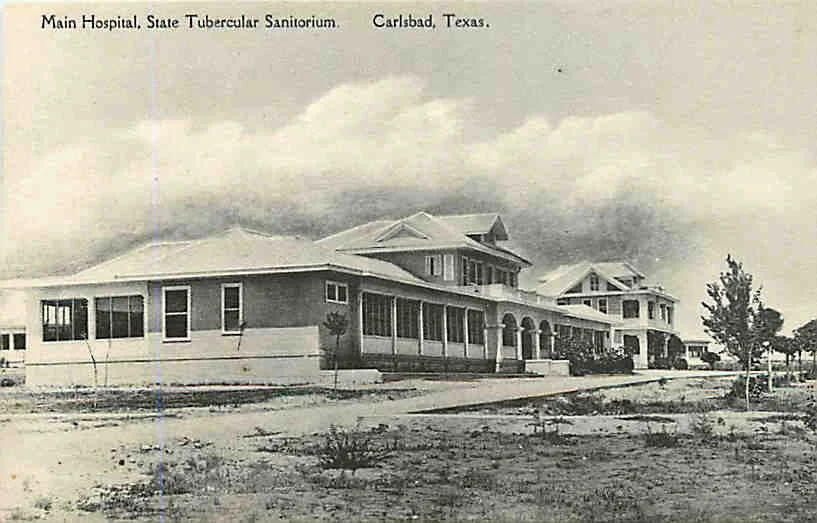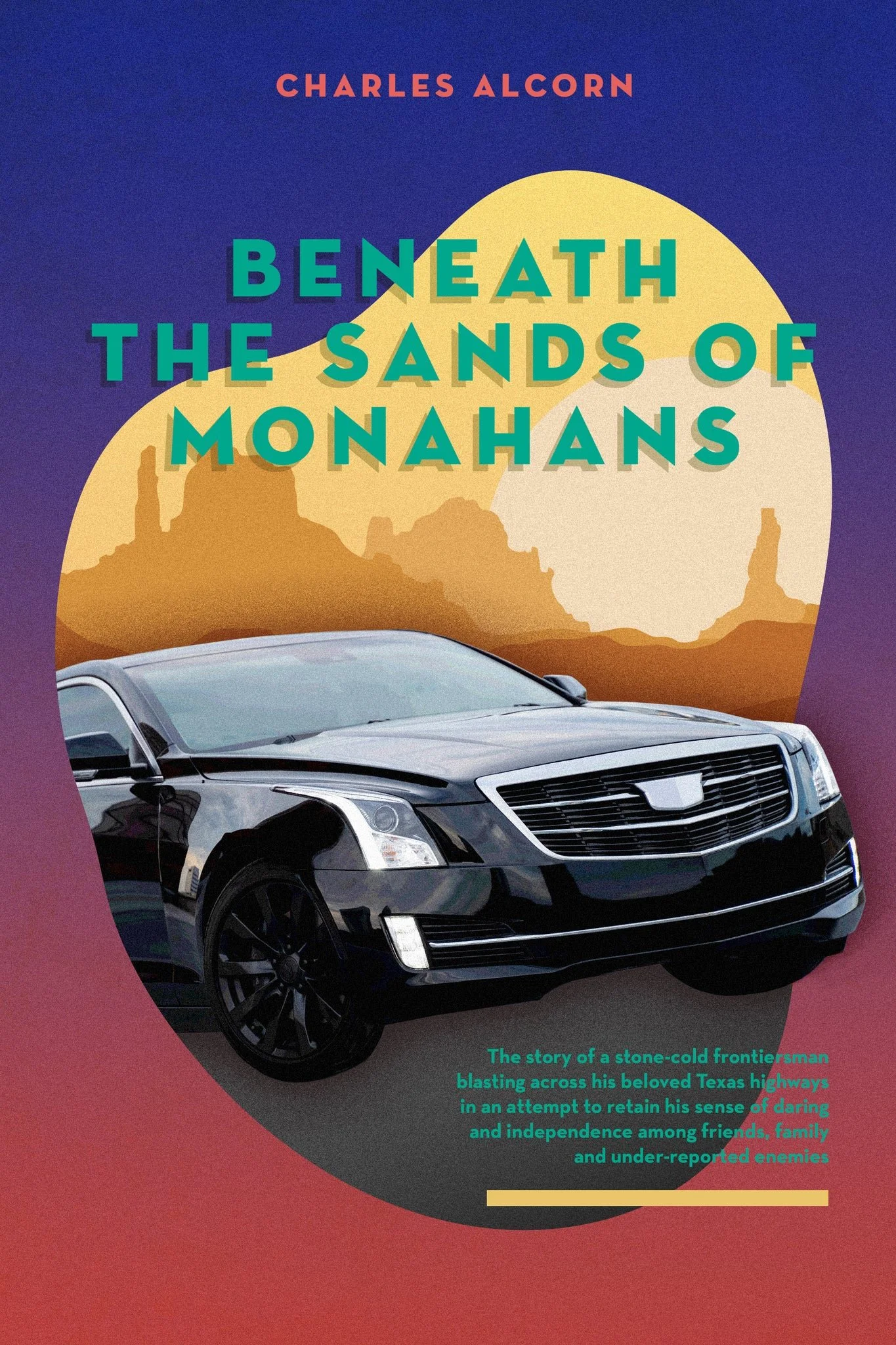Becoming Sister Ernestine
Novelist Charles Alcorn memorializes his former teacher at one of the oldest Catholic high schools in Texas
AUTHOR’S NOTE
After eight years attending the public schools of small-town Victoria, I was the new kid at St. Joe, one of the oldest (1868) Catholic high schools in Texas.
As my home room teacher strode to the lectern on the first day of class, three new Protestant outliers mingled amidst the standard Catholic mix of Mexican Americans (Villafranca, Molina, Gonzáles) and German Czechs (Drabek, Ohrt, Shustereit). Unbeknownst to me, the next four years of my education would include a rare cultural/racial mashup in highly segregated 1970s South Texas.
A godsend.
In a land and time of white privilege, I was given the chance to mix. To better understand my new Mexican-American friends. To investigate the dominating European drive to claim lands for millennia that had been successfully cohabitated by scores of indigenous tribes—Karankawa, Lipan, Comanche, and ancient Coahuiltecans.
In her maroon and white habit and angelic wimple, the energetic Sister (Mary) Ernestine Vollmering (1930-1985), a native of beer-loving Shiner, Texas, immediately took us by the hand and taught us about love—love of literature, love of critical analysis and love of process. A scholar of Contemporary American Fiction, “Sister E.” was also an even-handed enforcer—grammar, punctuation, spelling and comportment. She wanted us to do well and asked that we follow her instructions faithfully. A kind taskmaster, to be sure.
Sister Ernestine was not interested in converting her Presbyterian student to Catholicism. She was an educator. She introduced me to another level of teaching: mentorship. Mentorship infused with love. The spirituality of agape—Universal Love. Universal acceptance of diversity and encouragement of difference.
Sister Ernestine’s inclusive, nurturing style of teaching is one that I took with me to the classrooms of the University of Houston, where I taught Freshman English and Creative Writing for 22 years. Sister Ernestine was the inspiring voice who demonstrated, through novels, short stories, and plays, how literature can transport the reader and be infinitely instructional on why people behave the way they do.
There is no better experience than to be taken under the wing of a kindly expert. Sister Ernestine was just such an expert. In fact, her mentorship and personal generosity was so profound, that I felt compelled to memorialize Sister Ernestine through her origin story, reimagined in my new novel.
Below is the excerpt from Beneath the Sands of Monahans (Deep Vellum Publishing, 2023).
Charles Alcorn
McAllen, Texas
October 2023
GONE TO TEXAS
Nice, France
May 25, 1956
The Mediterranean breeze, blowing soft and salty behind Nice’s most popular tourist restaurant, was redolent with the aromas of exquisite French seafood. Papa Ernest and daughter Evangeline waited in the alley behind La Gauloise for their daily leftovers—a long-time accommodation in exchange for fresh bread delivered by the two Ducornets, morning, noon, and night.
“Papa, let’s go to Texas.”
“Yes,” he said. “Let’s go.”
The eighty-four-year-old painter, whose luxurious white beard and leonine head resembled that of the American poet Walt Whitman, looked lovingly at his daughter in the fading spring light as she slowly turned the pages of a National Geographic. The magazine was thick with stunning photographs of a strange and beautiful landscape—a new national park in Texas—Big Bend.
“Oh, Papa,” she exclaimed, kissing his head. “Wouldn’t you love to paint this!”
The mistress of La Gauloise appeared with two heaping plates in exchange for three dozen fresh baguettes.
“Bon appetit, Ducornets!”
“Bon voyage,” replied the cheeky teen. “Au revoir!”
Two months later, the resourceful twenty-eight-year-old French nurse trainee and her frail, but game, father boarded a Moroccan freighter and set sail for America.
After three weeks of daily battering on the brutal Atlantic Ocean, Evangeline slid her peacefully passed father into the cerulean seas off St. Kitts. After another week, drifting with no fuel in the balmy Gulf of Mexico, the ship was boarded by the U.S. Coast Guard. In time, Evangeline and the stowaways were transferred to Galveston, then unceremoniously herded onto a train for Chicago, with a sudden stop on a seemingly endless plain.
Evangeline found herself at a crossroads.
San Angelo, Texas, to be precise.
Postcard image of Anti-Tuberculosis Colony No. 1 in Carlsbad, TX, n.d. Sixteen miles northwest of San Angelo, Texas in Tom Green County, the sanatorium was the state’s first institution of its kind. Established in 1912, it was renamed the State Tuberculosis Sanatorium in 1913, the McKnight State Sanatorium in 1951, the McKnight State Tuberculosis Hospital in 1955, before finally being converted to the San Angelo State School in 1969. Source: TXGenWeb Project
“Nurses! Nurses!” came a cry from the dusty station platform. A formidable woman in all white, hands on hips, stood bellowing at the passenger cars. “Any nurses on board?”
Evangeline, the only detainee with any English, waved her hand and grabbed her valise reinforced with twine.
“Are you a nurse?” asked the administrator, eyes squinting in the blowing sand, as a stout young woman approached, positively beaming. “What’s your name?”
“Sister Ernestine.”
“You’re a nun?”
“Yes. And a nurse.”
“Come with me.”
And just like that, the self-made, self-educated, self-proclaimed Sister Ernestine arrived in the New World, with no ecclesiastic sanction whatsoever—washed up on the shores of San Angelo; a place that could not have looked less like her home on the Côte d'Azur.
But no matter.
Evangeline was now Ernestine. The south of France was now West Texas.
Soon enough, the stern administrator and her bevy of newly trained nurses marveled at their young French protégé’s endless energy, her soothing accent, her supernatural ability to calm the anxious, especially the swarms of tubercular children under her care.
No one could believe a woman from the French Riviera was living in Tom Green County. As such, the in-name-only nun’s transformation from undocumented immigrant to certified American citizen went completely unquestioned. Undoubtedly, it also helped that Sister’s skin was as white and smooth as alabaster.
In fact, the only questions Sister Ernestine ever entertained were from grateful doctors, staff, and patients: “Are you from heaven?”
“No, no. I am from east of Monaco. West of Cannes,” she replied, smiling. “From the city you call Nice!”
And so it went for a solid decade, Sister Ernestine growing, maturing, utterly transforming from European stowaway to super-competent Texas nurse, reveling in her independence. Totally at peace in her carpet grass oasis, her institutional island, with names that changed from Anti-Tuberculosis Colony No. 1 to McKnight State Tuberculosis Hospital, and finally, San Angelo State School.
All the while, a young sheriff from Borden County, keeper of the peace in Gail, Texas, remained vigilant; eye on the prize—the radiant, elusive Sister Ernestine Ducornet.
Problem was, nobody knew how to date a nun. It just wasn’t done.
Nevertheless, and despite being married to his job, Chuck Fuchs fell in love with the ample, wire-haired nun-nurse from Nice.
And don’t think the good sister didn’t notice.
The Sheriff was all lawman. Tall, wind-tooled, and stern. A man of distinct German ancestry, but in no way a threat, unlike her parents’ Nazi tormentors. Chuck Fuchs was a kind man, as well. Arriving regularly, with tubercular urchins in tow.
And so, for ten long years, the Sheriff waited.
Kept his council.
Made no move.
Excerpted from the novel BENEATH THE SANDS OF MONAHANS by Charles Alcorn, copyright © 2023. Used by permission of Deep Vellum Publishing. All rights reserved.
Beneath the Sands of Monahans introduces Archie Weesatche, a hard-working orphan who’s recently sold his oilfield hot shot company, Keep On Truckin’. With money in his pocket, and time on his hands, Archie launches a long-planned Tour of Texas with best friend Okinawa Watkins, gambling with a colorful cast of hand-picked boosters and bookies on high school and college football games.
Enter Mexican heiress, Josefina Montemayor, who convinces her long-ago lover that Archie’s the only man she trusts to raise the $650,000 she needs to release millions in unrecovered cartel cash.
Set in a map’s worth of Texas locations, this “quest” narrative explores cultural minefields, the precarious nature of oilfield booms and busts, and the tricky world of cash money gambling during a legendary winning streak.




